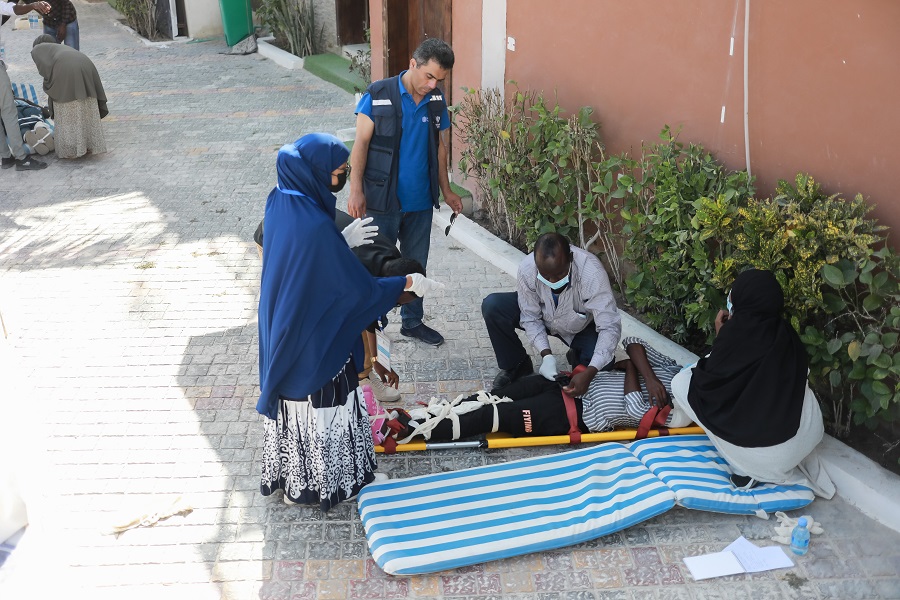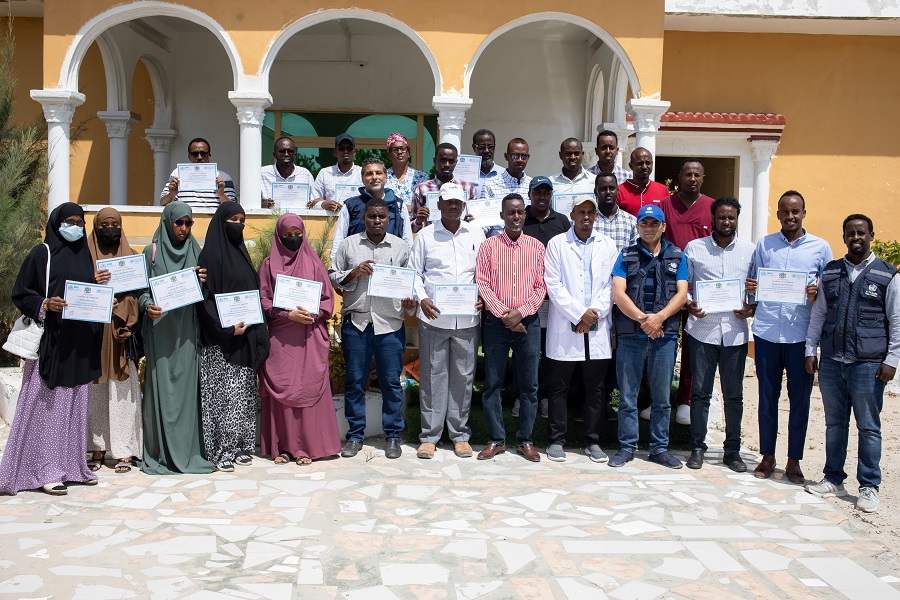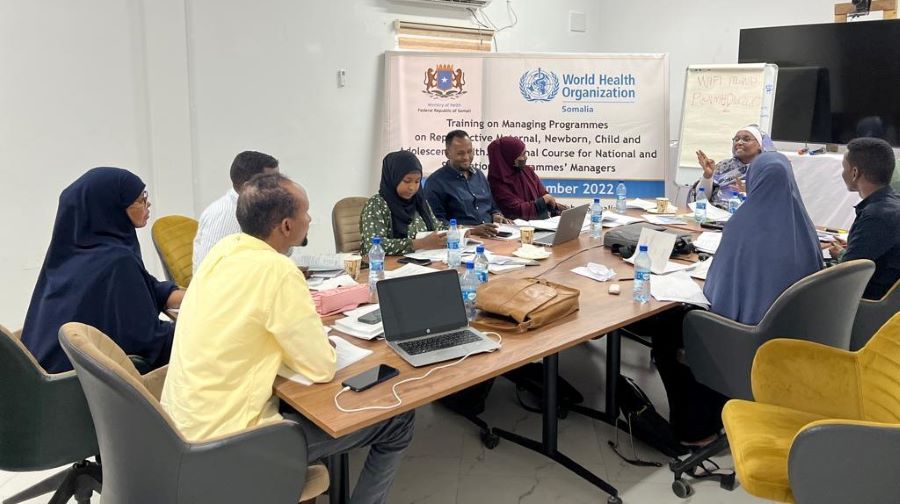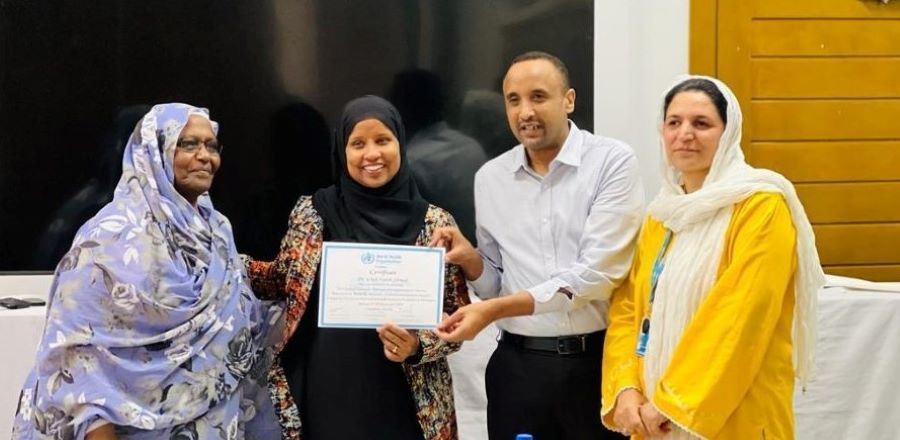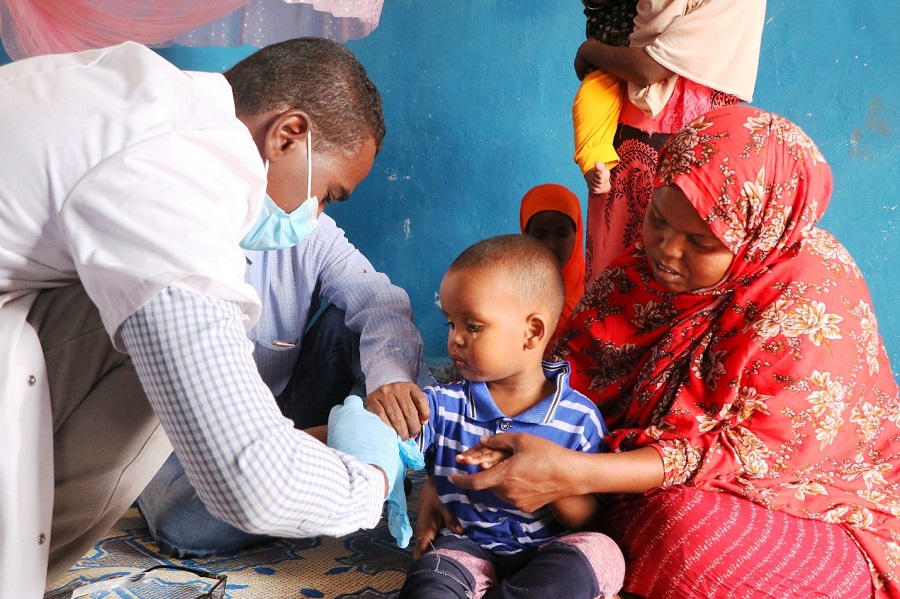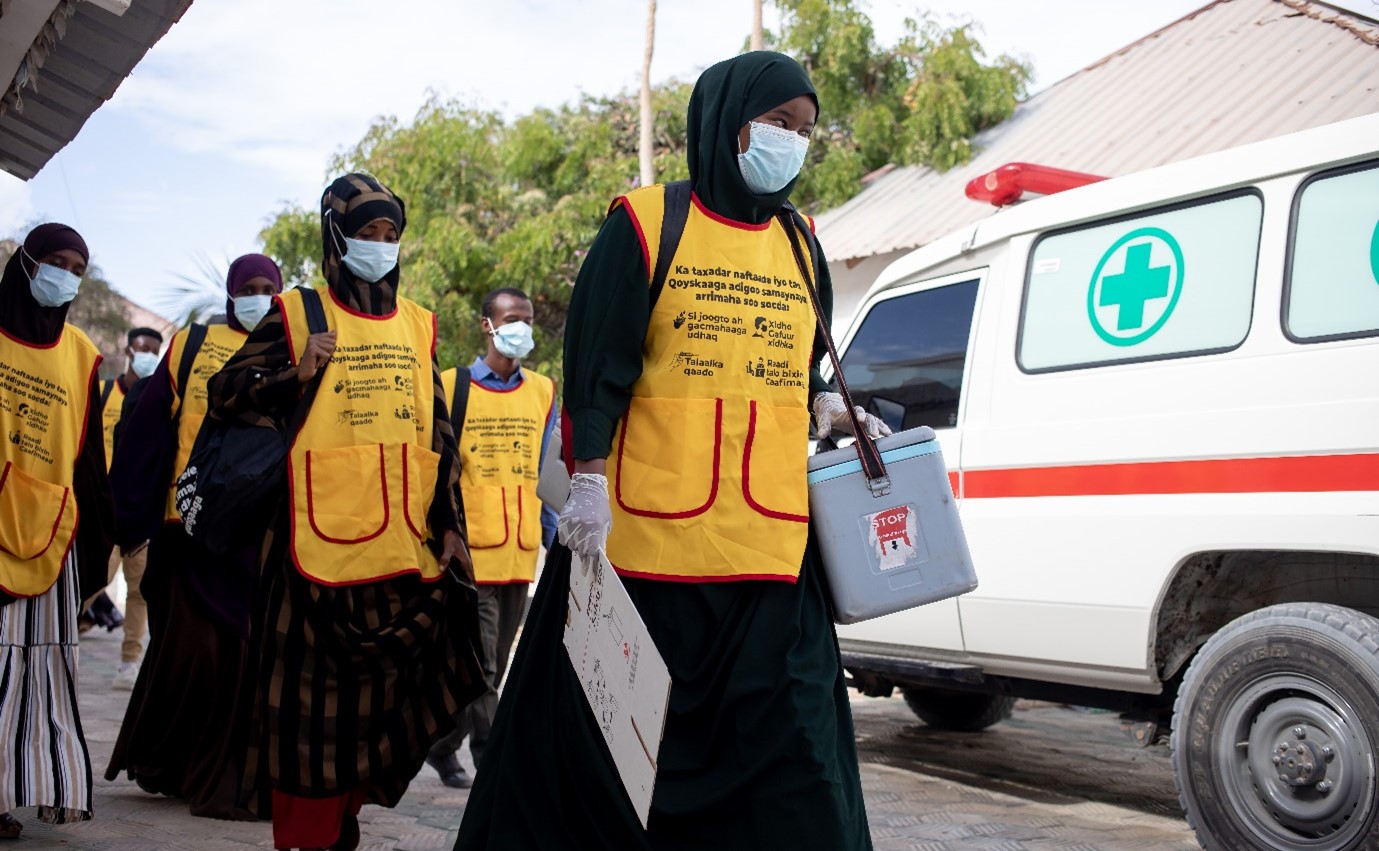The campaign comes against the backdrop of the drought that has seen a rise in the number of recorded cholera cases
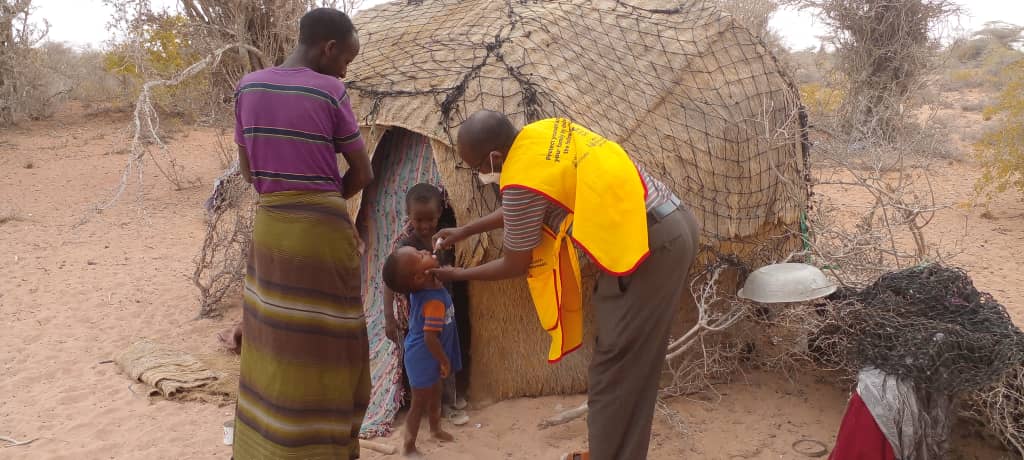
Mogadishu, 22 January 2023 – A 5-day single-dose oral cholera vaccination campaign that aims to reach about one million people has been launched by the Ministry of Health and Human Services with support from UNICEF and the WHO. This house-to-house campaign aims to vaccinate 995 886 children aged one year and above including pregnant women in the 10 districts most effected by the drought - Daynile, Dharkenley, Hamar Jajab, Hodan, Khahda, Baidoa, Kismayo, Afgoye, Marka and Jowhar.
Based on the epidemiological trends, partners have worked diligently to develop detailed micro plans and deployed 1328 outreach teams each composed on 2 vaccinators, one social mobilizer and one data entry person to ensure that everyone in the target district gets at least one dose of the cholera vaccine.
“We are not waiting to let the situation spiral out of our hands like it happened in 2012 when close to 260 000 people died with half of them being children due to outbreaks of cholera and measles across the country. This time the government and the partners are well prepared, and this special campaign has been designed and launched in collaboration with WHO and UNICEF to help prevent unnecessary morbidities and mortalities in high-risk areas,” said the Federal Minister of Health Dr Ali Haji Adan.
Cholera is an intestinal disease caused by bacteria that can be transmitted in contaminated water. It is especially dangerous for children who are malnourished and puts them at greater risk of dying. An estimated 6.4 million people face acute water shortages and poor sanitation in Somalia and 1.8 million children are likely to suffer from acute malnutrition a combination of which increases the likelihood of cholera infections among vulnerable populations. Official statistics from the Federal Ministry of Health and Human Services show that 15 635 cases of cholera and 88 deaths were reported in 26 drought affected districts of Somalia in 2022, with a 0.6% fatality rate.
Oral cholera vaccines are free, easy to administer and can help save life of people at risk of contracting cholera including children. In 2022, UNICEF and the WHO supported the Ministry of Health and Human Services to reach 897 086 people in the first oral cholera vaccination campaign and 888 092 people in the second campaign in 9 drought affected districts. Oral cholera vaccination campaigns in Somalia are implemented in addition to strengthening implementation of water, sanitation and hygiene interventions, risk communication and community engagement, timely detection and investigation of cholera alerts and standard case management of cases in designated treatment facilities. It is noteworthy that the Banadir region has reported uninterrupted transmission of cholera since the drought of 2017.
“The drought continues to pose a serious risk to the health and well-being of children in Somalia,” said UNICEF Representative Wafaa Saeed. “Many families are facing enormous challenges to access basic necessities such as water and sanitation. As we work round the clock with the government and partners to improve delivery of these services, enabled by the generous support of our donors, we are using every means at our disposal to prevent disease and deaths. This vaccination campaign has therefore come at the right time.” she says.
WHO Representative to Somalia Dr Mamunur Rahman Malik while considering the evolving cholera situation in Somalia as concerning said that, “As per WHO’s community- based surveillance, the number of suspected cases of measles and cholera have more than doubled this year as compared to the previous 2 years. Our continued outreach activities and vaccination campaigns have thus far kept the mortalities and morbidities to a minimum. Our last campaign in August 2022 helped vaccinate over one million Somalis. WHO will continue to support the federal and state ministries of health to reach out to newly displaced populations in distressed areas and this campaign is part of our ongoing endeavour to save every life in Somalia especially the most vulnerable like children and women.”
Together, the Federal Ministry of Health and Human Services, UNICEF and the WHO are working to ensure that every person has access to the lifesaving cholera vaccine in addition to improved access to primary health care services and safe water and proper sanitation.
_____________________________________
For more information, please contact:
Mukhtar Abdi Shube, Head of the Expanded Programme on Immunization (EPI) section, Ministry of Health, Federal Government of Somalia, هذا البريد محمى من المتطفلين. تحتاج إلى تشغيل الجافا سكريبت لمشاهدته.
Fouzia Bano – WHO Chief of Staff ai, Communications Officer, هذا البريد محمى من المتطفلين. تحتاج إلى تشغيل الجافا سكريبت لمشاهدته.
Victor Chinyama – UNICEF Chief of Communication, هذا البريد محمى من المتطفلين. تحتاج إلى تشغيل الجافا سكريبت لمشاهدته.
_______________________________________
Note to editors
Please see the links below for additional information on recent oral cholera vaccination campaigns in Somalia:
Gavi - the Vaccine Alliance
Gavi has been instrumental in providing the support for helping with the stockpiling of the vaccine doses, its transportation to the designated locations and related operational costs to ensure timely launch of this single-dose cholera vaccine campaign across 10 drought-affected districts of Somalia.





